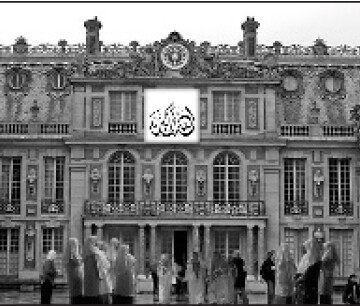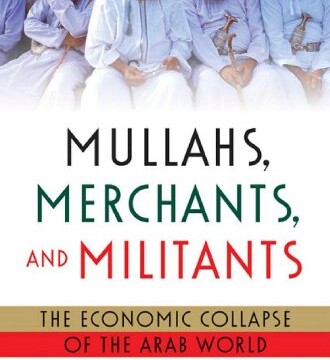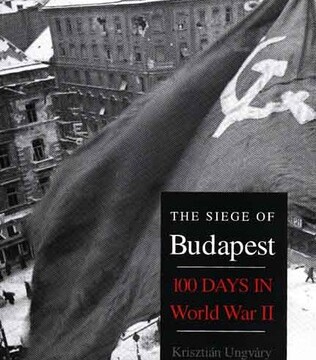President George W. Bush’s sixth State of the Union Address was his best so far, rhetorically speaking. As befits a President in deep trouble, his body language was that of a beta male, and he smiled demurely. His tone was calm and conciliatory, at times to the point of pleading. To the uninitiated, Mr. Bush...
Author: Srdja Trifkovic (Srdja Trifkovic)
The Grass Is Not Greener
The outcome of last November’s mid-term elections reminded us for the umpteenth time that democracy in America is a corrupt “democratic process” controlled by an elite class that conspires to make secondary issues important and to treat important issues as either irrelevant or illegitimate. One party may be in; another, out; but the regime is...
The Shiite Gallows
To taunt and curse a condemned man who is about to meet his Maker is one of the lowest forms of human depravity. The practice, commonly associated with lynching, brings to mind the quasijudicial bestialities of Dzerzhinsky and Roland Freisler’s Volksgerichtshof, Parisian tricoteuses, and various ethno-tribal atrocities down through the ages. The hanging of Saddam...
Iraq: The Least Bad Scenario
The Democrats’ victory on November 7 and Secretary of Defense Donald Rumsfeld’s departure a day later marked the beginning of the end game in Iraq. The moment is reminiscent of December 1970, when President Nixon decided to pull U.S. forces out of Vietnam by the end of the following year. The major difference is that...
Rummy Reduced
Had President George W. Bush fired Donald Rumsfeld a month before, rather than a day after, November 7, the Republican Party could have retained control of both houses. Still, doing it late is better than not doing it at all. Rumsfeld was a liability and an embarrassment, the embodiment of all that went wrong in...
The Untold Story of Kosovo Negotiations
Vojislav Kostunica, Serbia’s prime minister for the past three years, has one of the most challenging jobs in the world. He nevertheless seems at ease with that burden, and appears more confident than while he was Yugoslavia’s last president (2000-2003). When we met in ...
Eurabian Nights: A Horror Travelogue
Thousands of young Muslims, armed with clubs and sticks and shouting, “Allahu akbar!” riot and force the police to retreat. Windows are smashed; stores are looted; cars are torched. Europeans unlucky or careless enough to be trapped by the mob are viciously attacked, and some are killed. The scene could be Mogadishu in the aftermath...
Terror on the Underground
Two muslim terrorists held under Britain’s controversial “control order powers”—an Iraqi with possible links to Al Qaeda and a British citizen likely connected to the London Underground bombings last year—have escaped, as Tony Blair’s government reluctantly acknowledged on October 16. Both were suspected of being linked to international terrorist groups, and, in a sane world,...
Oriana Fallaci, R.I.P.
Oriana Fallaci, R.I.P. Back in the 1960’s, Oriana Fallaci was a “brave,” leftist, feminist hackette. Her iconoclastic interviews were praised by the chattering classes for bringing the genre to the heights of postmodernism: She was lauded for doing for journalism what Susan Sontag was doing for fiction. But whereas the latter progressed to become an...
To Lose a War
President George W. Bush’s highly anticipated prime-time speech to mark the fifth anniversary of the terrorist attacks on America was supposed to be nonpartisan and conciliatory. It offered him an opportunity to present mature thoughts on one of the most momentous events in this country’s history, to correct several manifest flaws in his conceptual approach...
A Turbulent Layman
If you did not know beforehand that Iranian President Mahmoud Ahmadine-jad was one of the most important men in the most neuralgic region of the world—and, by extension, in the world itself—you’d never have guessed it. One of the few things he has in common with President George W. Bush is a forgettable face. In...
Sir Alfred Sherman, R.I.P.
Sir Alfred Sherman, R.I.P. My dear friend and long-time associate Sir Alfred Sherman, who died in London on August 26, started his long political life as a Stalinist and ended it as one of the few “paleo” thinkers in today’s Britain. He will be remembered as the man who first invented “Thatcherism” and then explained...
An Undesirable Independence
Given the wars and rumors of war from North Korea to the Middle East, the last thing America needs is to reignite the proverbial powder keg in the Balkans, a region that has been fairly stable for the better part of this decade, especially when compared to the bloody 1990’s. That precarious stability could be...
The Destruction of Lebanon
Much of the Western commentary on the violence in Lebanon has not been about the events themselves but about the commentators’ feelings about the warring parties. Israel’s staunch friends and apologists would not admit that the IDF has done anything wrong, or that it could do anything wrong, even if the whole of southern Lebanon...
Israeli-Arab Conflict
The Holy Land’s long, hot summer started with a spate of rocket attacks by Palestinian militants based in Gaza on the Israeli border town of Sderot. Over 100 homemade Kassems had been fired by the last week of June, resulting in civilian casualties and calls for the return of Israeli troops to the Gaza Strip—a...
Decline Without Fall
Stephen Glain, a former Middle East correspondent for the Wall Street Journal, joins a long list of journalists, pundits, and think-tank analysts who have endeavored, since the World Trade Center attacks, to help America understand the Arab world. In his first (and, so far, only) book, he argues that the relationship between economics and political...
A Serious Third Party?
The looming amnesty of millions of illegal immigrants is deeply unpopular with millions of Americans, and for good reason: If the immigration bill the Senate passed in June gets through the House, this nation is finished. The bill would not only legalize some ten million illegal aliens but bring in five times that many—legally—over the...
One Hell for All
In Sartre’s grim play No Exit, a man and two women are in Hell, which, in this case, is a brightly lit drawing room furnished in the style of deuxième empire. At one point, the man, Garcin, famously quips that “hell is other people” (“l’enfer, c’est les autres”). One of the women, Inès, eventually responds...
Violence in Iraq
Violence in Iraq has escalated, following the February 22 attack on the revered Shiite shrine al-Askari in Samarra. Some 200 Sunni and Shiite mosques were attacked, burned, or bombed in the two-month period after the attack. The weekly toll of explosions, retaliatory attacks, and targeted killings has prompted many commentators to describe the chaotic conflict...
Neglected New Martyrs
Abdul Rahman, an Afghan who faced the death penalty in his native country for converting from Islam to Christianity, was granted political asylum in Italy and arrived in Rome on March 29. His release came after several weeks of intense pressure by the United States and other Western governments on Kabul to spare his life...
A Balkan Tragedy
For the past two-and-a-half millennia, our civilization has cultivated tragedy as an art form that articulates some of the key problems of our existence. Hamlet, Macbeth, Richard III—these works speak timeless truths in an ever-contemporary language. In the case of Serbia’s former president Slobodan Milosevic, reality has proved equal to inspired imagination. His life, which...
Hell in Panonia
The siege of Budapest in the winter of 1944-45 was not as militarily significant as that of Stalingrad or as colossally wasteful of human life as Leningrad, but it was still a human tragedy of the highest order. For the Germans and their (often reluctant) Hungarian allies, Hitler’s order to defend the capital of Hungary...
Muslim Rage and American Folly
The U.S. State Department has effectively sided with militant Islam by condemning the decision of newspapers in Denmark, Norway, and elsewhere in Europe to publish cartoon drawings depicting Muhammad, the founder of Islam. On February 3, State Department press officer Janelle Hironimus told reporters, “Inciting religious or ethnic hatred in this manner is not acceptable....
Victim of Jiihadism
Fr. Andrea Santoro, who was murdered in February in Trabzon, on Turkey’s Black Sea coast, was a victim of jihadism. An Italian missionary priest who had served in Turkey for ten years, Father Santoro was shot twice at point-blank range in his church by a youth who shouted “Allahu akbar!” (“Allah is great!”) before fleeing...
Profiling and Spying: A Necessary Evil
Gary S. Becker, a professor of economics and sociology at the University of Chicago and a 1992 Nobel Prize winner, cannot be accused of “racism.” After all, he supports liberalizing immigration laws for educated professionals from around the world, especially India and China. But his warning, in a Wall Street Journal op-ed last December, that...
Peace in the Holy Land, Elusive as Ever
A year ago, the prospects for peace in Israel-Palestine appeared more promising than at any other time after Bill Clinton’s failed Camp David initiative in 2000. Arafat’s death in November 2004 had removed a major cause of Palestinian corruption and incoherence, as well as the justification for Israel’s refusal to accept direct talks. Mahmoud Abbas’...
A Confusing Message
George W. Bush, between Thanksgiving and Christmas last year, gave a series of speeches seeking to justify his policy in Iraq. The opening shot came at the Naval Academy in Annapolis on November 30, when he outlined the new “National Strategy for Victory in Iraq” and declared that there is no alternative to a complete...
Sunni Arab Prisoners Freed
American soldiers stumble upon a secret dungeon and discover dozens of emaciated prisoners—173 of them, to be precise—who had simply vanished from the face of the Earth over the previous weeks and months. Horrified GIs walk wide-eyed through the stinking chamber of horrors whose inmates grasp with difficulty that their ordeal is over. Most of...
History Is Contemporary
Alex Dragnich’s attempt to compress a multifaceted millennium of Serbian history into 160 pages is bold and could be considered audacious in a lesser man. So much has to be left out, and what is included has to be treated with such economy and such precision, that many a professional would cringe at the task....
Trouble With Iran
Iran’s President Mahmoud Ahmadinejad declared on October 26 that “Israel must be wiped off the map.” Invoking the words of Ayatollah Khomeini, he told an audience of 4,000 cheering students that a new conflict in Palestine would soon remove “this disgraceful blot from the face of the Islamic world.” The statement, made in the midst...
Afghanistan’s Democratic Process
George W. Bush bailed last September’s parliamentary election in Afghanistan as “a major step forward” for the country’s democratic process. When the results were published at the end of October, however, it became obvious that the Wolesi Jirga (Lower House) will be dominated by warlords, veteran jihadists, and former Taliban officials. The new legislature will...
Jihad’s Enablers
Almost 80 years ago, Julien Benda published his tirade against the intellectual corruption of his time, La Trahison des Clercs. The “scribes” in question are those who traffic in words and ideas. For generations before the 20th century, Benda wrote, members of the Western intellectual elite made sure that “humanity did evil, but honored good.”...
Intifada in France
The northern industrial suburbs of Paris suffered the worst of eight consecutive nights of rioting on November 3-4. Disorder has now spread to dozens of provincial towns, including Dijon, the first city outside Ile-de-France (the metropolitan region) to be affected by unrest. Hundreds of cars, as well as schools, stores, and warehouses have been torched or...
An Unsteady Empire
August 29, 2005, the day when hurricane Katrina hit the Gulf Coast, may have marked the beginning of the end of the American Empire. Four years after the horrors in New York and Washington, D.C., showed the nation’s vulnerability to external attack, the Hobbesian free-for-all in New Orleans demonstrated just how fragile it is internally....
“Global Initiative”
Bill Clinton has summoned “his own mini-General Assembly of presidents, prime ministers, kings and other pooh-bahs” to devise plans for “addressing poverty, global warming, religious conflict and better governance.” The inaugural meeting of what the perjurer in chief modestly calls the Clinton Global Initiative has brought together 800 bigwigs who paid $15,000 each for a...
Intrigue in the Balkans
Having devoted a major part of my working life over the past four years to researching and writing about terrorism, I am alert to the possibility that there are a few people around me who would like to shut me up—for good, if at all possible. The tragic end of Theo van Gogh, slaughtered in...
European Disunion
In early 1980, the Soviet Union appeared to be more powerful than ever before. Its hold over Eastern Europe had been sealed in Helsinki five years previously. Its presence or influence in the Third World was rising, while that of the United States was diminishing. The notion of its eventual demise was dear to a...
Getting China Straight
The challenge that the rise of China presents to the United States is more pressing than any other global issue except for the ever-present threat of jihad. Beijing is rapidly becoming a regional power of the first order, the Asian hegemon that will need to be contained, confronted, or, in some way, appeased. Its ruling...
Iraq: The Way Out
Two years and three months after President Bush announced the end of “major combat operations” in Iraq, the war is far from over. Large areas of the country are affected by an open-ended guerrilla insurgency. Periods of intense violence are followed by brief and temporary lulls. Vice President Dick Cheney asserted on May 31 that...
The Real Issue With the Newsweek Koran Fib
The obvious moral of the Newsweek affair is that journalists, and leftist journalists (the common type) in particular, are habitual liars unworthy of respect. To those of us interested in Balkan affairs, the whole Koran to-do elicits a wry smile. Front-page stories from the 1990’s, including countless fact-free accounts of “Bosnian rape camps,” “Kosovo genocides,”...
Rejecting Proposals
The French and the Dutch rejections of the proposed E.U. constitution by referenda (May 29 and June 1, respectively) shook the European neoliberal federation—though it was unwilling to concede defeat: The European Union’s Luxembourg presidency and the leaders of France and Germany immediately declared that the process of ratifying the charter should proceed in other...
Aid and Comfort to the Enemy, Part II
In last month’s American Proscenium, I focused on the news that Washington is reaching out to various Islamist activists opposed to the secularist regime of Bashir Assad, and notably to the supposedly “moderate” elements of the Muslim Brotherhood in Syria. The editorial, entitled “Aid and Comfort to the Enemy,” concluded that such policies reflect either...
Getting Europe Straight
An American foreign policy based on a national-security strategy consistent with this country’s traditions and values would have three main objectives in relation to Europe. The first would be to promote the preservation of the Old Continent as the cradle of our common civilization, with which North America shares a similar world outlook. The second...
Aid and Comfort to the Enemy
According to an April 2 report published by Intelligence Online, for some months now, Washington has been putting out feelers to various Islamic activists who spearhead the opposition to the Syrian regime. According to this source, American diplomats are also cultivating contacts in Qatar with TV preacher Sheikh Yusuf al-Qaradawi, “with whom they frequently discuss...
The Impact of Islam on the Arab-Israeli Dispute
The role of Islam in the Israeli-Palestinian dispute is a contentious subject with two main schools of thought. One, broadly sympathetic to the Palestinian point of view, treats the conflict in geopolitical and social, rather than ideological or religious, terms. The other, emanating mostly (although not exclusively) from pro-Israeli sources, maintains that the Palestinian cause—even...
A Morbid Quest
Paul Wolfowitz’s nomination by President George W. Bush as the new president of the World Bank has caused a storm of protests from abroad, but the news is good. At his new post, Wolfowitz will not be able to do nearly as much damage as he has done at the Pentagon. That damage has been...
Global Anarcho-Tyranny
The kind of regime that is being imposed on the world by what still passes for the West has two basic forms. The form preferred by the Democratic Party in the United States and by the European Union is multilateralist and therapeutic. The form favored by the people who currently control U.S. foreign policy is...
Territorial Compromise
President George Bush has encouraged Arabs and Israelis to “lay down the past.” “Territorial compromise is essential for peace,” he said. “We seek peace, real peace. And by real peace I mean treaties.” Israelis praised President Bush for promising not to railroad them into any agreements, while the Palestinians believed he showed support for their...
A Glimmer of Hope in the Holy Land
Mahmoud Abbas’s convincing victory in the Palestinian presidential election on January 9 provided a piece of good news in an otherwise somber Middle Eastern landscape. Often described as an old Fatah apparatchik with little charisma and popularity, Abbas managed to win 62 percent of the 775,000 votes cast in the West Bank, East Jerusalem, and...
Rumsfeld Stays
Having provided advice to a number of influential Balkan figures in my time, I know the sense of frustration when sound counsel is overruled in favor of proposals based on error or mendacity. I have been proved right, but only when it was too late: Crown Prince Alexander Kara-djordjevic would have been better off had...






